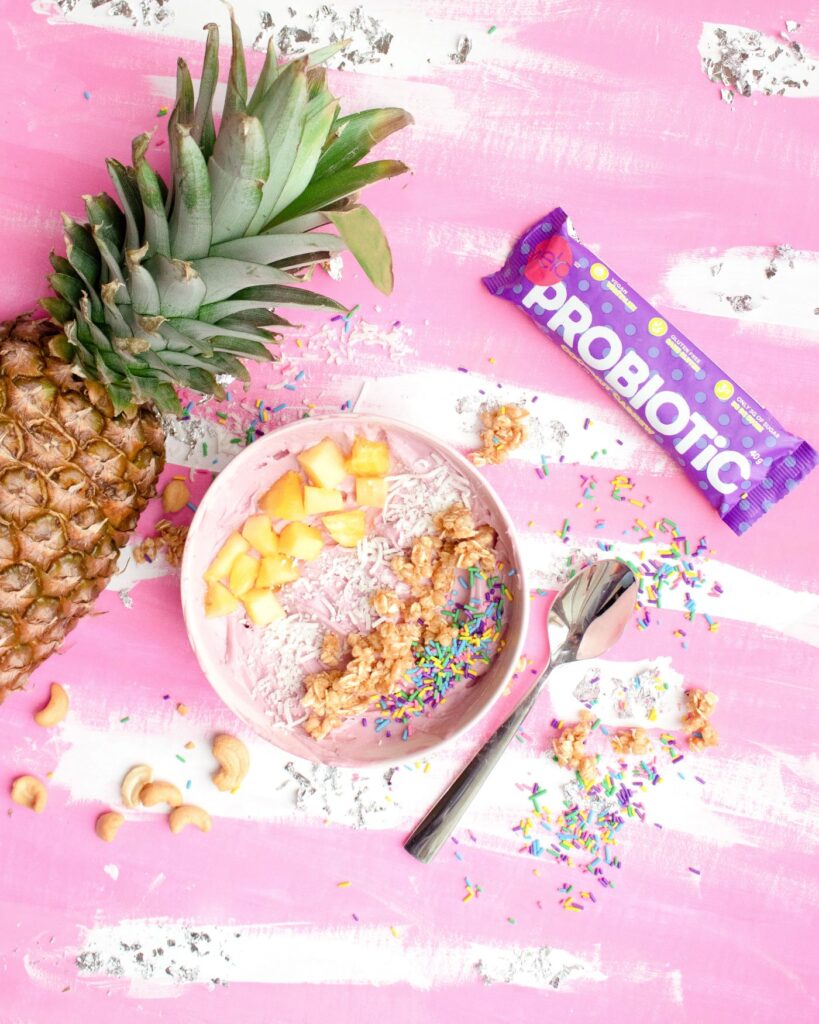Nutrition
What Is The Difference Between Probiotics And Prebiotics
The human gut is a complex ecosystem containing billions of bacteria known collectively as the gut microbiome. The microbiome is essential for our overall health and well-being. It aids digestion, food absorption, and even modulates our immune system. The gut microbiome contains both beneficial and dangerous bacteria, and maintaining a balance between the two is critical for good health.
What Are Probiotics?
Probiotics are living bacteria and yeasts that are good for the human body, particularly the digestive tract. They can be found naturally in some foods, including yogurt, kefir, sauerkraut, and kimchi. Probiotics can also be taken as food supplements.
Probiotics operate by replenishing and promoting the growth of good bacteria in the stomach. These helpful bacteria aid in the digestion and absorption of nutrients, as well as the prevention of dangerous bacterial overgrowth. Probiotics help improve digestion and overall gut health by encouraging a healthy bacterial balance.

Types of Probiotics and Their Benefits
There are numerous forms of probiotics, each with unique benefits. The most prevalent forms are Lactobacillus and Bifidobacterium. Lactobacillus, which may be found in yogurt and other fermented foods, is known for its capacity to aid in lactose intolerance and promote immunological health. Bifidobacterium is often present in the stomach and can aid digestion and promote a healthy gut microbiota.
Probiotics have been extensively researched for their possible health benefits. They have been reported to alleviate a variety of digestive problems, including diarrhea, irritable bowel syndrome (IBS), and inflammatory bowel disease (IBD). Probiotics may also aid to strengthen the immune system, improve skin health, and promote mental wellbeing. However, the specific benefits of probiotics can vary based on the type and strain.
What Are Prebiotics?
Probiotics deliver good bacteria into the gut, whereas prebiotics offer the nutrients these bacteria require to thrive. Prebiotics are dietary fibers that humans cannot digest. Instead, they serve as food for the probiotics in our guts. Consuming prebiotic-rich meals can help to promote the growth and activity of beneficial bacteria in our digestive tract.
How Prebiotics Support Gut Health
Prebiotics serve various important functions that contribute to intestinal health. First, they promote the growth of good bacteria in the stomach. This promotes a healthy bacterial balance and prevents dangerous bacteria from overgrowing. Second, prebiotics can aid digestion by increasing short-chain fatty acid synthesis, which provides energy to colon cells. Finally, prebiotics can improve the gut’s ability to absorb minerals like calcium and magnesium.
Consuming prebiotics has been linked to a variety of health advantages. Prebiotics have been demonstrated in studies to help with constipation, bowel regularity, and the health of the gut flora. They may help improve metabolic health, such as blood sugar and cholesterol levels. Furthermore, prebiotics have been proven to improve the absorption of key minerals including calcium and magnesium.

The Difference Between Probiotics and Prebiotics
Although the phrases probiotics and prebiotics are frequently used interchangeably, they refer to distinct aspects of our digestive system. Probiotics are live bacteria and yeasts that benefit our gut, whereas prebiotics are dietary fibers that serve as food for these good bacteria.
Probiotics deliver good bacteria into the gut, whereas prebiotics offer the nutrients these bacteria require to thrive. In other words, probiotics are the “good” bacteria, but prebiotics are the nutrients that help them grow and function.
Understanding the distinction between probiotics and prebiotics is critical for promoting gut health. By including both in your diet, you can get the benefits of a healthy gut microbiota.
The Importance of Probiotics and Prebiotics for Overall Health
Maintaining a healthy gut is beneficial for more than simply digesting. According to emerging research, the gut microbiota influences our immune system, mental health, and even weight control.
Probiotics and prebiotics can assist to maintain a healthy gut flora and improve overall health. Probiotics and prebiotics collaborate to keep the gut microbiota healthy and diverse by replacing beneficial bacteria and providing them with the nutrients they require.

Incorporating Probiotics and Prebiotics Into Your Diet
Fortunately, adding probiotics and prebiotics into your diet is rather simple. Probiotics are present in fermented foods such yogurt, kefir, sauerkraut, and kimchi. To get the most out of probiotics, consider products with live and active cultures. Alternatively, you can take probiotic supplements, which come in a variety of forms and strains.
Prebiotics can be found in a variety of plant diets. Onions, garlic, leeks, bananas, asparagus, and chicory root are excellent sources of prebiotics. By incorporating these foods into your diet, you can naturally boost your prebiotic consumption and promote the growth of healthy bacteria in your gut.
Conclusion
Probiotics and Prebiotics are two crucial components of our digestive system, each playing a unique role in supporting gut health. Probiotics, consisting of live bacteria and yeasts, introduce beneficial microorganisms into the gut, while prebiotics, dietary fibers, serve as nourishment for these beneficial bacteria.
Maintaining a healthy gut microbiome and promoting overall well-being requires attention to both probiotics and prebiotics. By integrating probiotic-rich foods or supplements and incorporating prebiotic-rich foods into my diet, I can optimize my gut health and enjoy the diverse benefits associated with a balanced gut microbiome.
So, the next time I encounter the terms probiotics and prebiotics, I’ll remember that they are not interchangeable. Understanding and including both in my diet are essential steps to achieving a healthier gut and enhancing my overall well-being.
Trusted Health, Wellness, and Medical advice for your well-being


